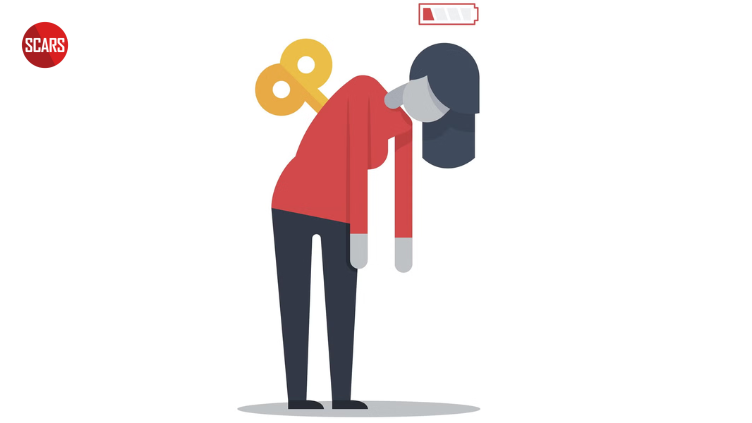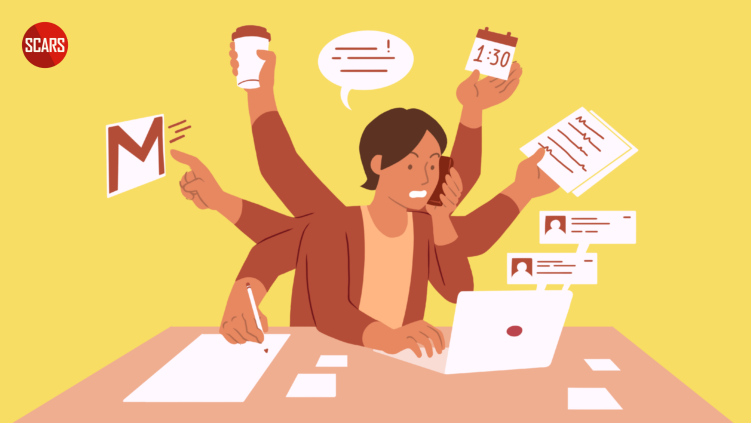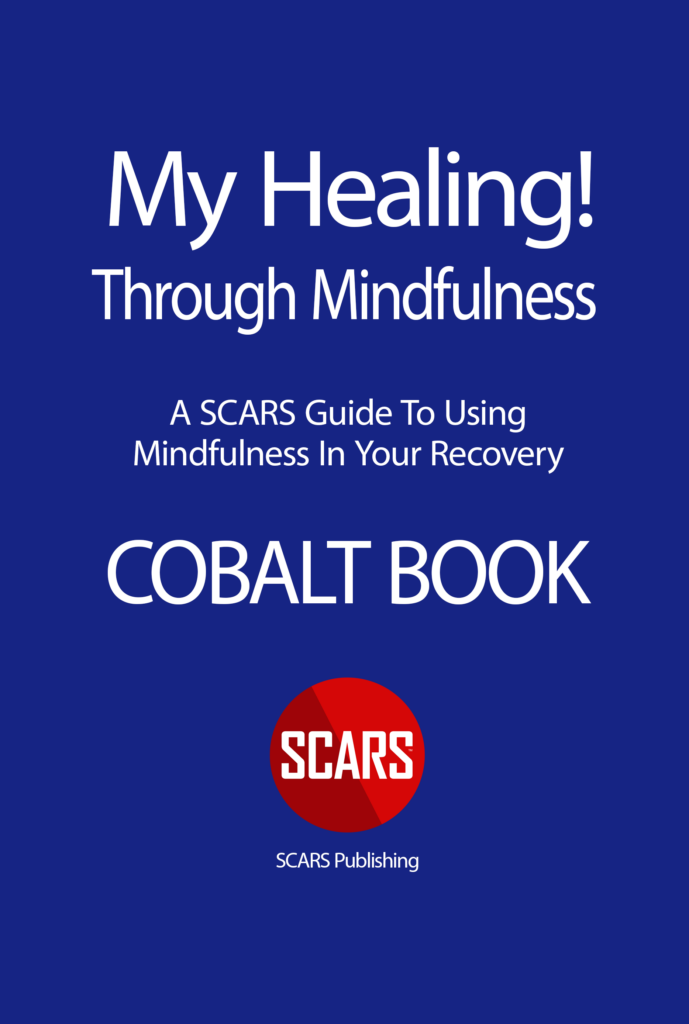Multitasking Creates Scam Victim Vulnerabilities
The Process of Multitasking Divides Our Attention and Dramatically Increases Vulnerability
Psychology of Scams
Authors:
• Vianey Gonzalez B.Sc(Psych) – Licensed Psychologist Specialty in Crime Victim Trauma Therapy, Neuropsychologist, Certified Deception Professional, Psychology Advisory Panel & Director of the Society of Citizens Against Relationship Scams Inc.
• Tim McGuinness, Ph.D. – Anthropologist, Scientist, Director of the Society of Citizens Against Relationship Scams Inc.
About This Article
In today’s modern era, multitasking has become ubiquitous, driven by technological advancements and societal shifts. While initially seen as a means to enhance productivity, research has revealed its detrimental effects on cognitive function and decision-making.
The concept of multitasking emerged in the latter 20th century, coinciding with the rise of personal computers and communication technology facilitating concurrent task performance. Its prevalence increased with the advent of smartphones and other mobile devices, embedding multitasking deeper into daily routines.
However, the Japanese philosophy of “ichigyo-zammai,” advocating single-minded focus and dedication to one task at a time, offers an alternative solution rooted in mindfulness and excellence. In contrast to multitasking’s fragmentation, “ichigyo-zammai” prioritizes depth over breadth, emphasizing concentration and persistence for meaningful results.
Amidst the allure of multitasking, recognizing its risks, such as susceptibility to scams and fraud, underscores the importance of adopting a more mindful, focused approach to tasks.
The Hidden Danger of Multitasking: How it Makes Anyone Vulnerable to Online Scams, Fraud, and Cybercrime
In today’s fast-paced instant-everything world, multitasking has become the norm. With smartphones constantly buzzing with notifications and multiple tabs open on our browsers, it’s easy to find ourselves juggling various tasks simultaneously.
At work or at home it seems like there are a million things to do all at once. So multi-taking is a survival skill. Or is it?
What most people don’t realize is that multitasking, especially online, can make us more vulnerable to scams, including the increasingly common romance and investment scams. But it is not limited to them. Phishing almost exclusively depends on limited attention and distraction, coupled with overconfidence in safety. Also, all scams, fraud, and cybercrime depend on someone’s limited attention.
What is Multitasking Anyway?
Multitasking is the act of engaging in multiple tasks or activities simultaneously. While it may seem like a way to get more done in less time, research has shown that multitasking can actually impair cognitive function and decision-making abilities. When we try to focus on several things at once, our attention becomes divided, making it harder to process information effectively.
From an awareness point of view, multitasking refers to the simultaneous handling of multiple tasks or activities. It involves switching attention back and forth between different tasks rapidly or attempting to perform multiple tasks concurrently. For example, someone might try to respond to emails while participating in a video conference or texting while driving.
From a neurological perspective, multitasking involves the brain’s ability to allocate cognitive resources to different tasks. The brain relies on networks of neurons to process information related to each task, with different regions of the brain responsible for various cognitive functions such as attention, memory, and decision-making. When multitasking, the brain must rapidly switch between these different networks, allocating resources to each task as needed.
Research suggests that true simultaneous multitasking, where the brain focuses on multiple tasks simultaneously, is limited and often ineffective. Instead, what typically happens during multitasking is rapid task-switching, where the brain alternates attention between tasks. This constant shifting of attention leads to decreased efficiency, increased errors, and reduced cognitive performance overall.
Furthermore, studies have shown that attempting to multitask can actually impair cognitive function by overloading the brain’s capacity to process information. When the brain is confronted with too many tasks at once, it can become overwhelmed, leading to decreased attention, memory lapses, and difficulty in making decisions.
While multitasking may seem like a way to increase productivity, it actually comes at the cost of reduced cognitive performance and vulnerability to errors and omissions. It’s generally more effective to focus on one task at a time, allowing the brain to allocate its resources more efficiently and achieve better results.
The Modern World and Its Perils
The concept of multitasking in modern terms emerged in the latter half of the 20th century, coinciding with advancements in technology and changes in work patterns. While humans have always engaged in tasks simultaneously to some extent, the term “multitasking” gained prominence in the 1980s and 1990s with the widespread adoption of personal computers and the development of software applications that allowed users to perform multiple tasks concurrently.
Some believe that it was an outgrowth of World War II where soldiers, like never before, had to contend with multiple threats and targets simultaneously. After the war, American management schools recognized the value of using this acquired skill.
As media and computing technology evolved and became more integrated into daily life, multitasking became increasingly prevalent in various contexts, including work, education, and leisure activities. With the advent of smartphones, tablets, and other mobile devices, multitasking has become even more ingrained in modern society, as people constantly switch between different apps, messages, and activities throughout the day.
Our grandparents did not multitask when they were younger. In the time before computers and cable TV, we did a single thing at a time. Most people had 1-3 channels of TV and planned in advance what they would watch. Families had one phone. They eat dinner together every day. However, multitasking is a big part of the destruction of that way of life and most people were not even aware it was being done to them.
The term “multitasking” became a part of our societal lexicon as people recognized the perceived need to describe and discuss the phenomenon of performing multiple tasks simultaneously or in rapid succession. It is now commonly used to describe the ability or practice of handling multiple tasks concurrently, although research suggests that true simultaneous multitasking is limited in humans and can lead to reduced efficiency and cognitive strain.
The internet offers us a wealth of information and connectivity like never before. From social media platforms to online shopping sites, we can access a vast array of services and interact with people from all corners of the globe. However, this interconnectedness also comes with risks, as the online world is rife with scams and fraudulent activities and our devotion to multitasking plays into that.
How Multitasking Plays a Role
Multitasking can significantly increase our susceptibility to falling for scams and other online frauds. Here’s how:
- Reduced Critical Thinking: When we’re multitasking, our ability to critically evaluate information is diminished. Scammers take advantage of this by creating elaborate stories and manipulating emotions to cloud judgment.
- Impaired Attention to Detail: Multitasking often leads to overlooking crucial details, such as inconsistencies in a scammer’s story or red flags indicating fraudulent behavior. These oversights make it easier for scammers to deceive their victims.
- Increased Distraction: Multitasking can make us more susceptible to distractions, making it harder to discern genuine interactions from fraudulent ones. Scammers exploit this by bombarding victims with messages and overwhelming them with information to prevent them from thinking critically.
- Rushed Decision-Making: In a multitasking mindset, we’re more likely to make impulsive (biases-based) decisions without thoroughly considering the consequences. Scammers capitalize on this by pressuring victims to act quickly, such as sending money before they have time to think it through.
How Multi-Tasking Interferes with Cognition
Multitasking can reduce cognition and attention in several ways:
- Divided Attention: When you’re multitasking, you’re splitting your attention between multiple tasks. This division of attention can lead to shallower processing of information, as your brain has to switch back and forth between tasks, resulting in less focus on each individual task.
- Increased Errors: Multitasking often leads to increased errors because your brain may struggle to keep track of all the different tasks simultaneously. This can result in overlooking important details or making mistakes that you might not have made if you were focused on one task at a time.
- Reduced Productivity: Contrary to popular belief, multitasking doesn’t make you more productive. In fact, it can actually decrease productivity because constantly shifting between tasks consumes mental resources and time. This switching cost can slow you down and make it harder to complete tasks efficiently.
- Impaired Memory: Multitasking can impair your ability to encode information into memory effectively. When your attention is divided, it’s harder for your brain to consolidate and retain information, leading to poorer memory recall later on.
- Increased Stress: Juggling multiple tasks at once can increase stress levels as your brain tries to keep up with the demands of each task. This can lead to feelings of overwhelm and fatigue, further impairing cognitive function.
While multitasking may seem like a way to get more done in less time, it often comes at the cost of reduced cognition, attention, and overall performance. It actually takes more time to do the same word with quality when multitasking compared to single focus. It’s almost always more effective and easier on our mind and body to focus on one task at a time to achieve better results.
Multitasking interferes with cognition and impacts decision-making in the brain through several mechanisms:
- Limited Attentional Resources: The brain has a limited capacity for attention and cognitive processing. When you multitask, you’re dividing these limited resources among multiple tasks, which can lead to reduced overall performance on each task. This division of attention makes it difficult for the brain to fully engage with and process information, impairing decision-making abilities.
- Task Switching Costs: Multitasking often involves rapidly switching between different tasks. Each time you switch tasks, there is a cognitive cost associated with refocusing your attention and mental resources on the new task. These “task-switching costs” can slow down cognitive processing and lead to errors or inefficiencies in decision-making.
- Impaired Working Memory: Working memory is the system in the brain responsible for temporarily holding and manipulating information during cognitive tasks. Multitasking can overload working memory because you’re trying to juggle multiple pieces of information at once. This can impair decision making by making it harder to weigh options, evaluate risks, and consider consequences effectively.
- Reduced Cognitive Control: Multitasking can undermine cognitive control processes that are essential for making sound decisions. Cognitive control involves abilities such as inhibiting irrelevant information, maintaining attention on task-relevant stimuli, and regulating impulsive responses. When you multitask, these cognitive control processes may become compromised, leading to poorer decision-making outcomes.
- Increased Stress and Fatigue: Multitasking can be mentally taxing and stressful, especially when trying to manage multiple tasks simultaneously. Chronic stress and fatigue can impair cognitive function and decision making by disrupting neural circuits involved in executive functions, emotional regulation, and risk assessment.
- Risk of Information Overload: Multitasking can result in information overload, where the brain becomes overwhelmed by the volume of information it needs to process. This can lead to cognitive overload, making it harder to prioritize tasks, filter out irrelevant information, and make informed decisions.
It is now known that multitasking interferes with cognition and impacts decision-making significantly in the brain by overloading attentional resources, incurring task-switching costs, impairing working memory, undermining cognitive control, increasing stress and fatigue, and risking information overload. As a result, multitasking leads to poorer decision-making outcomes compared to focusing on one task at a time.
Multi-Tasking and the Brain
Multitasking in the brain involves the simultaneous processing of multiple tasks or activities. While the brain is incredibly complex and multitasking can vary depending on the specific tasks involved, some general principles help explain how multitasking functions in the brain:
- Parallel Processing: The brain is capable of processing multiple streams of information simultaneously. Different regions of the brain are responsible for different cognitive functions, such as attention, memory, motor control, and language processing. During multitasking, these regions work in parallel to handle the various tasks being performed.
- Task Switching: Multitasking often involves rapidly switching attention between different tasks. When you shift your focus from one task to another, your brain engages in what is known as task switching. This involves disengaging from the neural networks associated with the previous task and activating the networks needed for the new task.
- Working Memory: Working memory plays a crucial role in multitasking by temporarily holding and manipulating information relevant to ongoing tasks. It allows the brain to keep track of multiple tasks simultaneously and switch between them as needed. However, working memory has limited capacity, so trying to juggle too many tasks at once can overload it, leading to decreased performance.
- Executive Control: Executive functions, such as cognitive control, attentional control, and decision-making, play a key role in multitasking. These functions help prioritize tasks, allocate resources, and coordinate actions to achieve goals effectively. When multitasking, the brain relies on executive control processes to manage competing demands and maintain focus on the most important tasks.
- Selective Attention: Selective attention allows the brain to filter out irrelevant information and focus on the task at hand. During multitasking, the brain must allocate attention selectively to different tasks, deciding which tasks to prioritize and which to ignore temporarily. This process helps prevent cognitive overload and allows for more efficient task performance.
Multitasking in the brain involves complex interactions between different cognitive processes and neural networks. While the brain is capable of handling multiple tasks simultaneously to some extent, there are limits to its capacity, and excessive multitasking can lead to decreased performance and cognitive overload. It’s generally more effective to focus on one task at a time, allowing the brain to allocate its resources more efficiently and achieve better results.
Awareness of Risks and Dangers
Multitasking can indeed impact our awareness of risks and dangers. Here’s how:
- Impaired Decision-Making: When you’re multitasking, your brain is dividing its resources among multiple tasks. This can lead to impaired decision-making abilities because you may not be fully focused on evaluating risks and making informed choices. As a result, you might overlook potential dangers or make hasty decisions without considering all the relevant factors.
- Decreased Situational Awareness: Multitasking can reduce your overall situational awareness, making it harder for you to perceive and respond to potential risks in your environment. For example, if you’re distracted by texting while walking, you might not notice a car approaching or a hazard on the sidewalk.
- Slower Reaction Times: When you’re multitasking, your reaction times to unexpected events may be slower because your attention is divided. This delayed response can increase the likelihood of accidents or injuries, especially in situations where quick reflexes are necessary to avoid danger.
- Increased Vulnerability to Distractions: Multitasking makes you more susceptible to distractions, which can divert your attention away from potential risks or dangers. For example, if you’re trying to do multiple things at once while driving, such as talking on the phone and changing the radio station, you’re more likely to miss important cues like brake lights or road signs.
- Risk of Task Interference: Multitasking can lead to interference between tasks, where one task disrupts your ability to perform another task effectively. This interference can compromise your ability to respond to risks or dangers in a timely manner because your attention is fragmented across multiple activities.
Multitasking can diminish our awareness of risks and dangers by impairing decision-making, reducing situational awareness, slowing reaction times, increasing vulnerability to distractions, and causing task interference. It’s important to minimize multitasking, especially in situations where safety is a concern, to help maintain awareness and mitigate potential risks.
Multitasking Can Trigger Fight or Flight Responses
Have you ever been trying to get multiple things done in multitasking mode and you are interrupted by someone or something? Did you have a moment of anger or aggression? This is your fight response being triggered!
Multitasking can indeed trigger physiological responses associated with the fight-or-flight response, particularly when it induces stress or perceived threats to our well-being.
Here’s how multitasking can relate to the fight-or-flight response:
- Stress Response: Multitasking often involves juggling multiple tasks simultaneously or rapidly switching between tasks. This can lead to increased levels of stress as the brain attempts to manage competing demands and maintain focus on multiple stimuli. The body’s stress response, mediated by the sympathetic nervous system (the amygdala strikes again,) can be activated in situations perceived as challenging or overwhelming.
- Cognitive Overload: Multitasking can overwhelm cognitive resources, leading to a state of cognitive overload where the brain struggles to process and prioritize information effectively. This can result in feelings of anxiety, frustration, or agitation, which are common components of the fight-or-flight response.
- Increased Arousal: Multitasking can heighten physiological arousal levels, including increased heart rate, blood pressure, and respiration rate, similar to the physiological responses observed during the fight-or-flight response. These physiological changes prepare the body to respond to perceived threats or challenges by mobilizing energy and enhancing alertness and readiness for action.
- Impact on Attention: Multitasking can impair attentional processes, making it difficult to focus on important tasks or respond effectively to environmental cues. This diminished ability to maintain attention and concentration can contribute to feelings of stress and overwhelm, further exacerbating the activation of the fight-or-flight response.
While multitasking itself may not always directly trigger the fight-or-flight response, the cognitive and emotional demands associated with multitasking can contribute to stress and arousal levels that resemble those observed during the fight-or-flight response. Over time, chronic engagement in multitasking or exposure to high levels of cognitive load and stress can have detrimental effects on both physical and mental health, highlighting the importance of managing workload and prioritizing tasks effectively to mitigate the impact on well-being.
Multitasking and Hormal & Neurotransmitter Levels
Multitasking can relentlessly trigger changes in hormonal and neurotransmitter levels, primarily as a result of the stress response it often induces.
Here are some of the key hormones and neurotransmitters involved:
- Cortisol: Multitasking, particularly in high-stress situations, can elevate cortisol levels. Cortisol is often referred to as the “stress hormone” because its release is triggered by stressors, including cognitive demands and perceived threats. Elevated cortisol levels can affect mood, cognition, metabolism, and immune function.
- Adrenaline (Epinephrine): Multitasking can stimulate the release of adrenaline, also known as epinephrine, which is part of the body’s acute stress response. Adrenaline increases heart rate, blood pressure, and respiration rate, preparing the body for action in response to perceived threats or challenges.
- Noradrenaline (Norepinephrine): Noradrenaline, or norepinephrine, is another neurotransmitter involved in the stress response. Like adrenaline, it helps increase arousal, alertness, and attention in response to stressors. Multitasking can lead to the release of noradrenaline as the brain attempts to allocate resources to multiple tasks simultaneously.
- Dopamine: Dopamine is a neurotransmitter associated with motivation, reward, and pleasure. Multitasking, particularly when coupled with the perception of achieving goals or completing tasks, can stimulate the release of dopamine, providing a sense of satisfaction or accomplishment.
- Serotonin: Multitasking under stress can affect serotonin levels, which play a role in mood regulation, cognition, and behavior. Chronic stress or overload from multitasking may disrupt serotonin pathways, contributing to mood disorders such as anxiety and depression.
- Endorphins: Endorphins are neurotransmitters that act as natural painkillers and mood elevators. Multitasking, particularly when accompanied by feelings of accomplishment or success, can trigger the release of endorphins, providing a sense of well-being or euphoria.
Overall, the hormonal and neurotransmitter changes associated with multitasking are part of the body’s adaptive response to stress and cognitive demands.
Ironically, Adrenaline (Epinephrine) and Noradrenaline (Norepinephrine) released during multitasking can also make someone more likely to have less focus and be more distracted while trying to perform tasks.
However, chronic or excessive multitasking, especially in high-stress environments, can lead to dysregulation of these systems, contributing to negative health outcomes such as anxiety, depression, and burnout, but not just those, it can also affect other stress-related diseases such as fibromyalgia and other autoimmune disorders that can be triggered by stress and trauma.
Contributing to Mental Fatigue
Multitasking can also contribute to mental fatigue.
When you engage in multitasking, your brain is constantly switching between different tasks, allocating attention, and processing information for each one. This rapid task-switching can be mentally demanding and exhausting over time.
Here’s how multitasking can lead to mental fatigue:
- Cognitive Overload: Multitasking requires the brain to manage multiple streams of information simultaneously. This can overload your cognitive resources, leading to mental fatigue as your brain struggles to keep up with the demands of juggling multiple tasks.
- Increased Stress: Trying to focus on multiple tasks at once can be stressful, especially if you’re under pressure to perform well in each one. This heightened stress response can contribute to mental fatigue and make it harder to concentrate effectively.
- Reduced Efficiency: Contrary to popular belief, multitasking often decreases overall efficiency and productivity. When you’re constantly switching between tasks, you’re not able to give each one your full attention, leading to slower completion times and increased frustration, which can contribute to mental fatigue.
- Impaired Decision Making: Multitasking can impair your ability to make good decisions because your attention is divided among multiple tasks. This can lead to poorer judgment, increased indecision, and higher levels of mental fatigue as you struggle to process information and weigh options effectively.
- Decreased Performance: Studies have shown that multitasking can lead to decreased performance on tasks requiring concentration, memory, and problem-solving skills. As mental fatigue sets in, your ability to perform well on these tasks diminishes, further exacerbating feelings of exhaustion and overwhelm.
While multitasking may seem like a way to get more done in less time, it often comes at the cost of increased mental fatigue and decreased overall performance. As we have said, it’s generally more effective to focus on one task at a time, allowing your brain to allocate its resources more efficiently and reduce the risk of mental exhaustion.
Multi-tasking and Trauma Sufferers
For individuals who have suffered from severe psychological trauma, multitasking can significantly increase their symptoms and make it even more challenging to cope with their experiences.
Here’s how multitasking can affect individuals who have endured trauma:
- Increased Stress and Anxiety: Multitasking can heighten stress and anxiety levels, which may already be elevated in individuals who have experienced trauma. Juggling multiple tasks simultaneously can overwhelm the nervous system, triggering feelings of panic, hypervigilance, and emotional dysregulation.
- Difficulty Concentrating: Trauma survivors may already struggle with concentration and attention due to symptoms such as intrusive thoughts, flashbacks, and hypervigilance. Multitasking further taxes their cognitive resources, making it even harder to focus on one task at a time and maintain attention for extended periods.
- Triggering of Traumatic Memories: Multitasking can increase the likelihood of being exposed to stimuli or situations that trigger traumatic memories or reminders of the traumatic event. For example, attempting to multitask while working in a high-stress environment may inadvertently expose trauma survivors to triggers that exacerbate their symptoms.
- Impaired Decision-Making: Trauma survivors may experience difficulties with decision-making and problem-solving, especially when under stress. Multitasking can exacerbate these challenges by overwhelming their cognitive abilities and making it harder to process information and weigh options effectively.
- Escapism and Avoidance: Some trauma survivors may use multitasking as a form of escapism or avoidance to distract themselves from painful emotions or memories associated with their trauma. While this may provide temporary relief, it can also prevent them from fully processing and addressing their underlying issues, perpetuating a cycle of avoidance and emotional distress.
- Exhaustion and Burnout: Multitasking requires significant mental and emotional energy, which can lead to exhaustion and burnout, particularly for individuals who are already coping with the aftermath of trauma. Constantly juggling multiple tasks can drain their resources, leaving them feeling depleted and overwhelmed.
Multitasking can have detrimental effects on individuals who have suffered from severe psychological trauma by exacerbating stress and anxiety, impairing concentration and decision-making, triggering traumatic memories, promoting avoidance behaviors, and contributing to exhaustion and burnout. It’s important for trauma survivors to prioritize self-care, establish healthy boundaries, and seek support from mental health professionals to manage their symptoms and navigate the challenges of multitasking effectively.
Multi-Tasking’s Impact on Scam Victim Recovery
Attempting to multitask can indeed have an impact on victim recovery and can potentially become a way of avoiding the recovery process.
The mind needs time and singular focus to heal. More important than that is the need to reduce stressors, but multitasking actually increases stressors and impairs the mind’s ability to heal. Here’s how:
- Divided Attention: Recovery from trauma often requires focused attention and emotional processing. Multitasking divides attention among multiple tasks, which can interfere with the ability to fully engage in therapeutic activities such as counseling, self-reflection, or participating in support groups. This divided attention may hinder the healing process by preventing victims from fully immersing themselves in recovery-oriented activities.
- Avoidance of Difficult Emotions: Multitasking can serve as a distraction from painful emotions and memories associated with the trauma. Rather than confronting and processing these difficult experiences, victims may use multitasking as a way to avoid or numb their emotions. This avoidance behavior can impede progress in recovery by preventing victims from addressing underlying issues and working through their trauma in a constructive manner.
- Reduced Effectiveness of Coping Strategies: Recovery from trauma often involves learning and implementing effective coping strategies to manage symptoms and regulate emotions. Multitasking can undermine these coping efforts by increasing stress levels, decreasing attentional resources, and diminishing the effectiveness of coping skills. Victims may find it challenging to implement healthy coping strategies while multitasking, leading to heightened distress and slower progress in recovery.
- Interference with Self-Care: Recovery from trauma requires prioritizing self-care activities such as rest, relaxation, and engaging in activities that promote emotional well-being. Multitasking can detract from these self-care practices by consuming time and energy that could be allocated to self-care activities. As a result, victims may neglect their own needs and experience increased feelings of burnout, exhaustion, and overwhelm, which can impede recovery efforts.
- Difficulty Establishing Boundaries: Multitasking can blur boundaries between work, personal life, and recovery activities, making it challenging for victims to establish clear boundaries and prioritize their recovery needs. Victims may feel pressured to constantly multitask and may struggle to set aside dedicated time and space for engaging in recovery-oriented activities. This lack of boundaries can hinder progress in recovery by preventing victims from fully committing to the healing process.
Here again, multitasking may provide temporary relief or distraction, but it can ultimately impede victim recovery by dividing attention, promoting avoidance of difficult emotions, undermining coping efforts, interfering with self-care, and complicating boundary-setting. It’s important for victims of trauma to recognize the potential pitfalls of multitasking and to prioritize self-care, emotional processing, and engagement in recovery-oriented activities as essential components of the healing journey.
Avoiding Multi-Tasking Vulnerability
While multitasking may be unavoidable in today’s hyper-connected world, there are steps we can take to protect ourselves from online scams:
- Focus on Single Tasks: Whenever possible, and this is the single most important, try to focus on one task at a time, especially when engaging in activities that require critical thinking or decision-making.
- Postpone Interruptions: When we are trying to focus and an interruption pops up, postpone it, do not act on it. Let the tasks of the moment complete before worrying about something new.
- Stay Vigilant: Be wary of unsolicited messages or requests for money from people you’ve only met online. Trust your logical mind and investigate any suspicious behavior or inconsistencies.
- Verify Identities: Before engaging in online relationships with anyone or anything, take the time to verify the identity of the person or entity you’re interacting with. Look for social media profiles, conduct reverse image searches, do a corporation search, and ask probing questions to confirm their authenticity.
- Set Boundaries: Establish clear boundaries when interacting with strangers online and avoid sharing personal or financial information until you’re certain of their intentions.
The cursed multitasking may seem like a convenient way to navigate the complexities of the online world, but it can also leave us vulnerable to scams and fraudulent schemes, such as romance scams. By understanding the risks associated with multitasking and taking proactive steps to protect ourselves, we can navigate the digital landscape more safely and securely.
The Anti-Multitasking Philosophy of Japan
The cure for multitasking burnout and vulnerability is ‘ichigyo-zammai’.
In Japanese culture, there is a concept known as “ichigyo-zammai,” which can be translated as “one activity, wholeheartedly” or “single-minded devotion to a task.” This philosophy emphasizes the importance of focusing fully on one task or activity at a time, dedicating one’s complete attention and energy to it until it is completed.
‘Ichigyo-zammai’ is rooted in traditional Japanese values such as discipline, diligence, and mindfulness. It aligns with principles found in Zen Buddhism, which emphasizes the practice of mindfulness and being fully present in each moment. By focusing entirely on the task at hand, individuals aim to achieve a state of flow, where they are fully immersed in and absorbed by their activities, leading to increased productivity and satisfaction.
This mindset can be observed in various aspects of Japanese culture, including tea ceremonies, martial arts, and traditional crafts such as calligraphy and pottery. In these practices, practitioners devote themselves wholeheartedly to the activity, striving for perfection and mastery through focused attention and repetition.
“Ichigyo-zammai” contrasts with the Western notion of multitasking, which involves juggling multiple tasks simultaneously. Instead, the Japanese philosophy encourages individuals to prioritize depth over breadth, emphasizing the value of concentration and persistence in achieving meaningful results.
‘Ichigyo-zammai’ reflects a cultural emphasis on discipline, mindfulness, and the pursuit of excellence through single-minded focus and dedication to one task at a time. This is exactly the thing needed to reduce or eliminate the culture of multitasking.
Summary
To increase our own safety against socially engineered scams, fraud, and cybercrime, we need to back away from multitasking, constant interruptions, and split-focus. Mindfulness becomes more than a recovery tool, it also becomes the key to avoiding scams in the future.
The answer becomes that we do not need everything everywhere all at once!
Please Rate This Article
Please Leave Us Your Comment
Also, tell us of any topics we might have missed.
Leave a Reply
Thank you for your comment. You may receive an email to follow up. We never share your data with marketers.
-/ 30 /-
What do you think about this?
Please share your thoughts in a comment above!
More Mindfulness & Vulnerability Related Information:
- The Value of Slowness (scamsnow.com)
- Scam Victims In The RAIN – A Mindfulness Approach For Recovery – 2024 (scamsnow.com)
- Mindfulness Breathing For Scam Victims Recovery 2024 (scamsnow.com)
- Scam Victims’ Vulnerability And Device Screen Time 2024 (scamsnow.com)
- What Really Are Vulnerabilities That Lead To Scams? [UPDATED 2024] (scamsnow.com)
- Scam Victim Stress – The Psychological, Cerebral, and Physiological Effects – 2024 (scamsnow.com)
- Psychological Triggers/Emotional Triggers – What They Are And How They Work – 2023/2024 (scamsnow.com)
- The Zeigarnik Effect On Mind And Perception – Have You Ever Noticed? A Cognitive Bias – 2024 (scamsnow.com)
- A Small Drop Of Insight About Victims’ Trauma (scamsnow.com)
-/ 30 /-
What do you think about this?
Please share your thoughts in a comment above!
SCARS LINKS: AgainstScams.org RomanceScamsNOW.com ContraEstafas.org ScammerPhotos.com Anyscam.com ScamsNOW.com
reporting.AgainstScams.org support.AgainstScams.org membership.AgainstScams.org donate.AgainstScams.org shop.AgainstScams.org
youtube.AgainstScams.org linkedin.AgainstScams.org facebook.AgainstScams.org
ARTICLE RATING
TABLE OF CONTENTS
CATEGORIES
MOST POPULAR COMMENTED ARTICLES
POPULAR ARTICLES
U.S. & Canada Suicide Lifeline 988
![NavyLogo@4x-81[1]](https://scamsnow.com/wp-content/uploads/2025/04/NavyLogo@4x-811.png)
ARTICLE META
WHAT PEOPLE ARE TALKING ABOUT LATEST SITE COMMENTS
See Comments for this Article at the Bottom of the Page
on Arts and Crafts Can Significantly Aid in Recovery for Scam Victims – 2025: “I did not realize that things I like doing very much—knitting or sudoku—were so helpful in my recovery process. The…” Jul 14, 11:28
on Projection And Scam Victims: “The moment I realized I had a financial loss due to a scam I realized that I felt shame, guilt,…” Jul 13, 19:12
on Japanese Legend of Tears – When There Are No Words – 2025: “After discovering the fraud, the pain was enormous. I shed oceans of tears, but I always tried to do it…” Jul 13, 10:50
on The SCARS Institute Scam Victim Recovery Timeline – 2025: “Wow. I umm experienced some of the later curves. I have been bouncing back and forth between asking myself why…” Jul 11, 00:01
on Transference And Emotional Danger After The Scam – 2024: “Thank you for the kind but firm reminder that the person in the stolen profile photo has their own life.…” Jul 9, 01:26
on ‘Mental Defeat’ – The Unique Condition Of Giving Up – 2024: “Thank you for another great article. I can see from this article that mental defeat would be debilitating to a…” Jul 9, 00:49
on Trust: Romance Scams Betrayal And Scam Victims – 2024: “This provided valuable insight that I can identify with” Jul 8, 16:44
on A Scam Victim in Extreme Distress – Stopping the Pain – 2024: “Your trust issues are very understandable. We are very sorry this happened to you. We suggest that you contact an…” Jul 8, 14:42
on A Scam Victim in Extreme Distress – Stopping the Pain – 2024: “My online counselors advised me to check myself in. I went to the hospital because I was suicidal. After I…” Jul 8, 13:44
on Scam Victim Catastrophizing Making Recovery Difficult 2024: “Excellent article on catastrophizing. I can understand how this could take a person down a rabbit warren of never ending…” Jul 8, 12:12
on The Self-Pity Trap & How To Overcome It – 2023 – [UPDATED 2025]: “I am not in the habit of feeling sorry for myself. After the deception, although it was not easy at…” Jul 8, 11:49
on Pride – A Dual Edged Sword For Scam Victims – 2023 [UPDATD 2024]: “Looking back over my life I have seen how pride has impacted me both positively and negatively. However the negative…” Jul 8, 09:08
on The Self-Pity Trap & How To Overcome It – 2023 – [UPDATED 2025]: “I felt self-pity while the enormity of my financial loss washed over me like a tsunami. The self-pity lasted only…” Jul 7, 18:55
on The Uniqueness Of Scam Victims Or Fraud Victims – 2024: “unfortunately all true. It is highly stressful dealing with the aftermath. I am being sued for the money I borrowed…” Jul 6, 12:50
on Scam Victims & Mental Health Blaming – 2023 [UPDATED 2025]: “For most of my life words have defeated me, made me feel insignificant, unwanted, unneeded. For this reason it is…” Jul 5, 13:36
on Substance Abuse Susceptibility And Scam Victims – 2024: “It is understandable how some would feel that alcohol or substance abuse would be helpful in handling their feelings after…” Jul 1, 20:36
on Scam Victims Use Work To Avoid Healing: “The last 6 years have been the most difficult of my life. The pandemic, having both parents in the hospital…” Jun 29, 18:38
on Entitlement Mentality And How Scam Victims Often Lose Their Path To Recovery – 2024: “Thank you for this discussion of entitlement. I can see from the descriptions listed that I have not felt entitlement.…” Jun 29, 18:22
on Samurai Wisdom and Rituals for Clearing the Mind After Scam Trauma – 2025 – [VIDEOS]: “A great guide on how to move forward in our recovery process with a calm mind, cleansed on an ongoing…” Jun 28, 07:34
Important Information for New Scam Victims
Please visit www.ScamVictimsSupport.org – a SCARS Website for New Scam Victims & Sextortion Victims
SCARS Institute now offers a free recovery program at www.SCARSeducation.org
Please visit www.ScamPsychology.org – to more fully understand the psychological concepts involved in scams and scam victim recovery
If you are looking for local trauma counselors, please visit counseling.AgainstScams.org
If you need to speak with someone now, you can dial 988 or find phone numbers for crisis hotlines all around the world here: www.opencounseling.com/suicide-hotlines
Statement About Victim Blaming
Some of our articles discuss various aspects of victims. This is both about better understanding victims (the science of victimology) and their behaviors and psychology. This helps us to educate victims/survivors about why these crimes happened and not to blame themselves, better develop recovery programs, and help victims avoid scams in the future. At times, this may sound like blaming the victim, but it does not blame scam victims; we are simply explaining the hows and whys of the experience victims have.
These articles, about the Psychology of Scams or Victim Psychology – meaning that all humans have psychological or cognitive characteristics in common that can either be exploited or work against us – help us all to understand the unique challenges victims face before, during, and after scams, fraud, or cybercrimes. These sometimes talk about some of the vulnerabilities the scammers exploit. Victims rarely have control of them or are even aware of them, until something like a scam happens, and then they can learn how their mind works and how to overcome these mechanisms.
Articles like these help victims and others understand these processes and how to help prevent them from being exploited again or to help them recover more easily by understanding their post-scam behaviors. Learn more about the Psychology of Scams at www.ScamPsychology.org
SCARS INSTITUTE RESOURCES:
If You Have Been Victimized By A Scam Or Cybercrime
♦ If you are a victim of scams, go to www.ScamVictimsSupport.org for real knowledge and help
♦ Enroll in SCARS Scam Survivor’s School now at www.SCARSeducation.org
♦ To report criminals, visit https://reporting.AgainstScams.org – we will NEVER give your data to money recovery companies like some do!
♦ Follow us and find our podcasts, webinars, and helpful videos on YouTube: https://www.youtube.com/@RomancescamsNowcom
♦ Learn about the Psychology of Scams at www.ScamPsychology.org
♦ Dig deeper into the reality of scams, fraud, and cybercrime at www.ScamsNOW.com and www.RomanceScamsNOW.com
♦ Scam Survivor’s Stories: www.ScamSurvivorStories.org
♦ For Scam Victim Advocates visit www.ScamVictimsAdvocates.org
♦ See more scammer photos on www.ScammerPhotos.com
You can also find the SCARS Institute on Facebook, Instagram, X, LinkedIn, and TruthSocial
Psychology Disclaimer:
All articles about psychology and the human brain on this website are for information & education only
The information provided in this and other SCARS articles are intended for educational and self-help purposes only and should not be construed as a substitute for professional therapy or counseling.
Note about Mindfulness: Mindfulness practices have the potential to create psychological distress for some individuals. Please consult a mental health professional or experienced meditation instructor for guidance should you encounter difficulties.
While any self-help techniques outlined herein may be beneficial for scam victims seeking to recover from their experience and move towards recovery, it is important to consult with a qualified mental health professional before initiating any course of action. Each individual’s experience and needs are unique, and what works for one person may not be suitable for another.
Additionally, any approach may not be appropriate for individuals with certain pre-existing mental health conditions or trauma histories. It is advisable to seek guidance from a licensed therapist or counselor who can provide personalized support, guidance, and treatment tailored to your specific needs.
If you are experiencing significant distress or emotional difficulties related to a scam or other traumatic event, please consult your doctor or mental health provider for appropriate care and support.
Also read our SCARS Institute Statement about Professional Care for Scam Victims – click here
If you are in crisis, feeling desperate, or in despair, please call 988 or your local crisis hotline.
More ScamsNOW.com Articles
A Question of Trust
At the SCARS Institute, we invite you to do your own research on the topics we speak about and publish. Our team investigates the subject being discussed, especially when it comes to understanding the scam victims-survivors’ experience. You can do Google searches, but in many cases, you will have to wade through scientific papers and studies. However, remember that biases and perspectives matter and influence the outcome. Regardless, we encourage you to explore these topics as thoroughly as you can for your own awareness.

















![scars-institute[1]](https://scamsnow.com/wp-content/uploads/2025/04/scars-institute1.png)
![niprc1.png1_-150×1501-1[1]](https://scamsnow.com/wp-content/uploads/2025/04/niprc1.png1_-150x1501-11.webp)

This article explains very well the consequences of trying to do multiple tasks at one. It should be read by anyone. Personally, “multitasking” was one of the things that made me vulnerable to the scam.
As a younger person there was always too much that needed my attention, now that I have retired and am on my own, I do need to shift gears back to slow and steady. Interesting read and very important to the quality of life now.
It is very interesting to understand how my professional life went. From my resume to my job description, multitasking was required.
Now retired, sometimes I feel the need to continue multitasking, since my brained is already wired that way, although I don’t have the need anymore. Slowly but surely, I am learning to do one thing at a time.